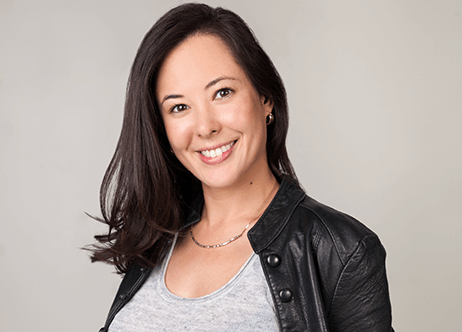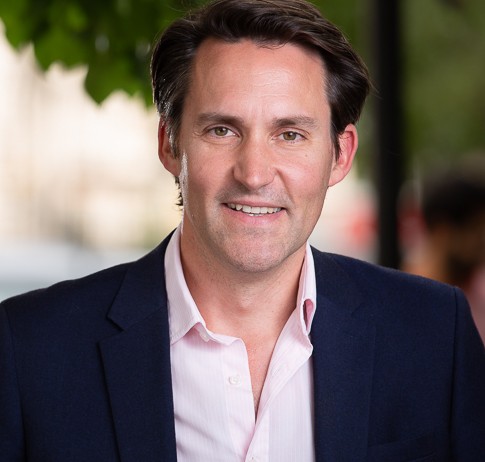Article
Game changing women in tech: insights from founders and investors driving innovation
14 May 2024 | 7 minute read
We help founders of, and investors in, high growth companies across a wide range of sectors and take great pride in helping them to turn their incredible ideas into stable and successful businesses. In a follow up to our discussion with female founders on how the tech sector could improve inclusion and diversity, here we feature the advice of a number of founders and investors on achieving success, making use of mentoring support and creating a collaborative network.
Industry challenges
-new.png)
In our last article we looked at some of the issues that impede gender equality in the tech sector. Several of our respondents, whether working on the investor or the fund-raising side, also pointed to structural issues in how female founders access venture capital funding.
"We have an opportunity to move money towards impact more quickly which ultimately diversifies the face of wealth over time."
Cat Hernandez Middleton, general partner at The Venture Collective, explains: "This industry is faced with a systemic challenge grounded on a lack of diversity within the largest pools of capital, which women and diverse managers have historically struggled to access, despite showcasing in many instances that they have the ability to outperform. As massive amounts of money shift towards a generation that cares about impact in a very different way, we have an opportunity to move money towards impact more quickly which ultimately diversifies the face of wealth over time ."
Katie Critchlow, non-executive director of Earthblox adds: "I think the VCs have found it easier to manage, motivate and incentivise people driven by money but haven’t done the work to figure out how to operate in this new world of green innovation where intrinsic motivation is much more important."
.png)
Advice to founders
For those who have been through the process of establishing a new enterprise, there's no sugar-coating the steep learning curve and sense of dislocation. "The early stages of a business are complete chaos. That’s OK, they are for everyone, so don’t fret ," says Katie. "I felt so relieved the first time I understood, ‘OK, this isn’t just me, this is pretty normal’. So long as things get better and better over time, don’t worry about a messy start!"
.png)
"The early stages of a business are complete chaos. That’s OK, they are for everyone, so don’t fret."
Amelia Armour, partner at Amadeus Capital says that: "An experienced Chair or NED who is prepared to spend time and help you can be hugely valuable at an early stage. An individual who has been through your journey before and is well respected in your chosen industry can add a huge amount of credibility. You may have to give them a small piece of equity but they should add significant value with their advice and network."
Marie Outtier, an entrepreneur and investor, recognises the toll that creating a new business can inflict, and warns that "starting a startup is risky. It is the ride of a lifetime and it can hugely impact your mental health in negative ways if you don't have a system in place to weather the downs." Cat looks at identifying and funding the right companies through the lens of her own experience in business. "As a former operator myself, I subscribe to the belief that there's no better training ground than having hands-on company building experience. It has definitely shaped my journey as an investor and, at foundation, gives me a lot of empathy for what it means to create an insane amount of value in a short period of time."

Katie adds that it is common to find new founders fluctuating between their belief in their ideas and capabilities, whilst simultaneously struggling with the day-to-day challenges of the business. "A characteristic of entrepreneurs is self-belief and, dare I say, stubbornness, so I’d now say however awesome you are, running a business is hard. Surround yourself with as many great and experienced people as you can to help you enjoy the ride more, you don’t have to know everything or do it all yourself!"
Jessi Baker, founder and CEO of Provenance suggests that you can make remarkable progress with a tight team around you: "Often people think hiring technical people is essential to a software startup - but I believe you can get very far with no code platforms and a lot of customer discovery and commercial commitments." Katie adds another side to the issue of setting up a team and finding the right people: "One of the hardest things when you are starting out as a first time CEO is knowing ‘what good looks like’ in your senior people. Get other experienced people to help interview if you can."
-blue.png)
"It’s common to believe you need to raise money from investors. I’d argue this is not needed until you are truly ready to scale."
Jessi posits another alternative to the conventional view of fundraising: "It’s common to believe you need to raise money from investors. I’d argue this is not needed until you are truly ready to scale. You can get very close to Product Market Fit without funding or anyone too technical (depending on the business, of course)."
Training, coaching and mentoring
Creating a supportive environment can be as important to founders seeking success and stability as the performance of their business and the strength of their team. Marie spells it out in the simplest terms: "Get a coach. I did not do this. I should have… You'll get the money back tenfold." Sandrine Zhang Ferron, founder and CEO of Vinterior recommends that "developing a support network of coaches, mentors, and peers is important for personal development and creating a sense of community and belonging"
-v3.png)
"Developing a support network of coaches, mentors, and peers is important for personal development and creating a sense of community and belonging."
Elise Jenkins, founder and CTO of OPTO, adds her support to investing in continued guidance: "I second the notion that mentors and coaches are important. A decision I made early into the founding journey was to find and work with an executive coach. I work with her every week, and it has been one of the best decisions to date."
-(002).png)
Elise looks at the role that many founders assume for others too, providing mentoring and support to upcoming start-up leaders, just as they received advice from experienced peers earlier in their careers. "Early on, I didn’t have specific role models, because I didn’t know where to look for them. Now, I have many, and many of them are incredibly powerful and influential women. I aim to be a role model and mentor or at minimum a source of encouragement for young women by demonstrating technical competence, entrepreneurship, and compassion."
"I aim to be a role model and mentor or at minimum a source of encouragement for young women by demonstrating technical competence, entrepreneurship, and compassion."
.jpg)
This urge to give back can come from a change in perspective, as Marie reflects: "Since an early age, I've been driven by the fear of not fulfilling my potential, not exploring enough. What was a very "me" goal turned into a "we" goal. I think collective intelligence trumps individual intelligence." Mollie Claypool, founder and CEO of Automated Architecture (AUAR), echoes this strong sense of social purpose. "One of the values that drives us at AUAR is the belief that a better common future is possible, and that sustainability on a material, social and systemic level is vital for this future to come true… We wanted to build a company whose legacy we would be immensely proud of, and that future generations could be proud of too.

"We wanted to build a company whose legacy we would be immensely proud of, and that future generations could be proud of too."
Georgina Gooley, co-founder of Billie, shares the advice that helped her when she was starting out: "Early on in my career a mentor gave me some advice that still resonates with me to this day: You don’t have to be the loudest person in the room but you do have to make yourself heard. Find your voice and don’t be afraid to ask questions."
Zoe Peden, partner at Ananda Impact Ventures, supports the power of carving out a unique and recognisable style or approach: "Building a presence through personal brand is important in all areas of industry. In terms of advice to founders or new investors starting out is to not follow the herd but create your own tribe. Build your own community."
.png)
Elise ends with a hopeful note on developing the next generation of business leadership: "Ultimately, fostering and supporting mentorship, and advocating for change within every level of an institution or organisation will likely have dramatic outcomes for generations to come."
Backing Innovation
Where private capital and powerful ideas meet





